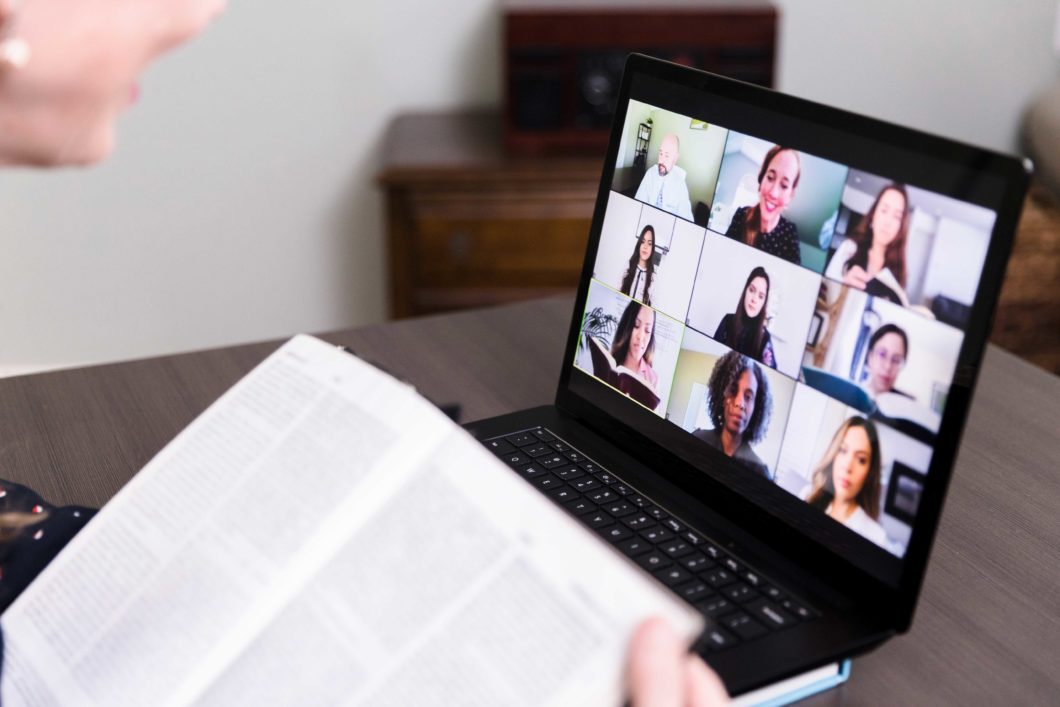Last year, if you’d asked me to picture a book club, I would’ve imagined a casual scene of friends getting together to discuss a new work of fiction. After hosting a NSSLHA chapter book club in preparation for National NSSLHA’s Raw Conversations: Book Club Discussion, and helping plan the National NSSLHA event, I now know book clubs can be much more. They can help prepare us to become advocates toward social justice, especially in the CSD field.
“Why Are All the Black Kids Sitting Together in the Cafeteria?”
Back in December, National NSSLHA’s Instagram followers voted to read the book Why Are All the Black Kids Sitting Together in the Cafeteria? And Other Conversations About Race, byDr. Beverly Daniel Tatum. She’s a psychologist and former president of Spelman College—a historically Black college. In her book, she shares her lived experience and expert opinion about racial identity development and its impact on all of our lives, regardless of race.
Tatum takes a bold position on what racism is, challenging the popular definition, “prejudice plus power.” Instead, she borrows from sociologist David Wellman, who defines it as “a system of advantage based on race,” highlighting the systemic nature of racism. To illustrate, she uses a moving walkway (like you might see at an airport) as a metaphor of racism:
- Those who choose to walk forward on the walkway are actively racist, engaging in overtly discriminatory behavior.
- Those who stand still on the walkway are still benefiting from the racist system and are heading toward the same destination.
- Only by walking on the walkway in the opposite direction are we anti-racist.
The Student Perspective
During National NSSLHA’s Raw Conversations book club event, we broke out into groups to discuss our place within the bigger picture of racism. My group members noted the examples of economic, educational, and healthcare disparities we see in our own communities. Those affected by systemic racism are our neighbors, friends, classmates, and often, ourselves.
We also discussed how racism is relevant to our future careers as audiologists and speech-language pathologists. What do you do when you’re told to distinguish between a language disorder and a language difference, but you never learned what the differences look like? What do you do when an assessment tool doesn’t exist in a child’s language? It’s our job, as students and future professionals, to not only ask these questions, but demand answers and find solutions.
Tatum writes, “learning how to have these conversations is a necessary part of moving forward as a healthy society. You can’t fix what you can’t talk about.” Often, we falter at the first step to making change: Having a conversation. The very act of opening up a dialogue is not just important, but necessary. Having the space during National NSSLHA’s event—where everyone was there solely to have this conversation—succeeded in cutting through the discomfort and difficulty often encountered when trying to have conversations about race.
Beyond the Classroom
My NSSLHA chapter’s diversity committee took the opportunity to host our own weekly book club in preparation of National NSSLHA’s event (which was our “finale”) so we could go through the learning process together first.
A key mindset among our members was recognizing this wasn’t just an opportunity to learn, but to unlearn systems of oppression that have been so deeply ingrained in us—one of the “inescapable consequences of living in a racist society,” according to Tatum. One such system we analyzed was our biases about language. We deconstructed the idea of one “correct” way of speaking English and began to educate ourselves to avoid assumptions about intelligence or education based on dialect or accent, including African American English. Together, we developed a better understanding of language variation and how it applies to our field.
5 Tips for Hosting Your Own Book Club
My advice to anyone wanting to host a book club on the topic of race is to create an environment of mutual respect and acknowledge that we’re all in different places on our educational journey:
- Challenge yourself. Pick a book outside of your comfort zone and build on your base of knowledge rather than repeat the basics.
- Make organizing the book club a collaborative process. My chapter alternated who led discussions as a way for everyone to feel involved.
- Commit to a deep reading. Set aside time to read, reflect, then meet. Annotating as I read helped me connect concepts throughout the whole book.
- Be curious. Most non-fiction books have citations or recommendations for further reading. Take the opportunity to explore those extra readings if a specific idea piques your interest.
- Make difficult conversations a priority. Speak from your own experience and listen to the experiences of others without skepticism, doubt, or interruption. Ask questions—and when disagreements arise, be productive instead of combative.
Remember, these discussions aren’t about solving racism overnight, but about planting seeds that grow into big, structural change.
From Education to Action
A book club can be an informative and rewarding experience, but it’s what we do next that counts. One of my biggest takeaways from National NSSLHA’s event was a conversation on how social justice movements come in waves of passion, protest, and progress. Following this wave, it’s easy to feel burnt out, especially if the progress isn’t as big as we’d hoped.
How Do We Continue the Momentum?
In the final chapter of the book, we find our answer: Community. Tatum writes, “We all need community to give us energy, to strengthen our voices, and to offer constructive criticism when we stray off course.” At all of National NSSLHA’s Raw Conversation events, that feeling of community is present. It’s up to us to bring that same energy back with us to our own NSSLHA chapters. I came away from the event with a renewed sense of hope that our next generation of clinicians and researchers will continue to challenge injustice and be a unified community committed to change.

